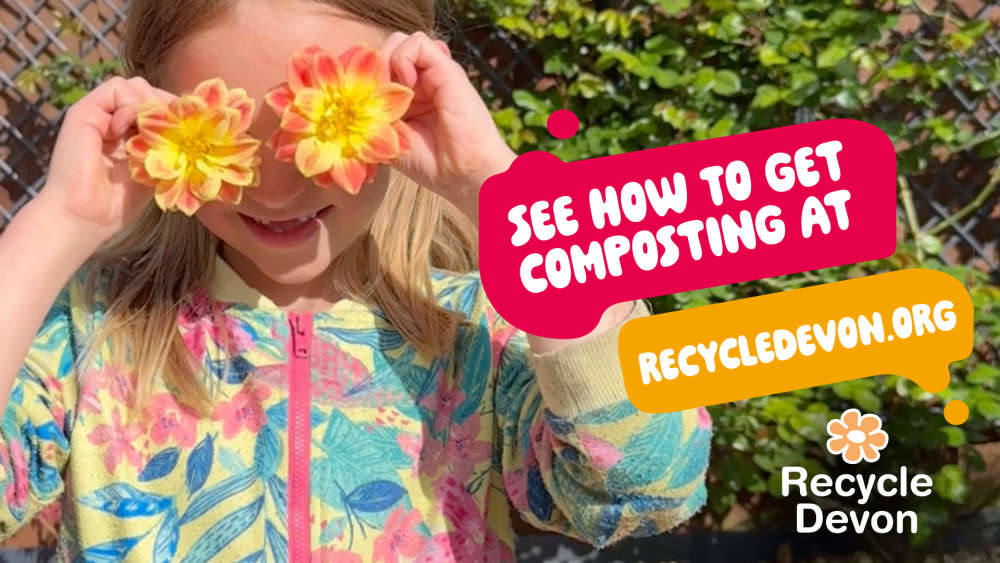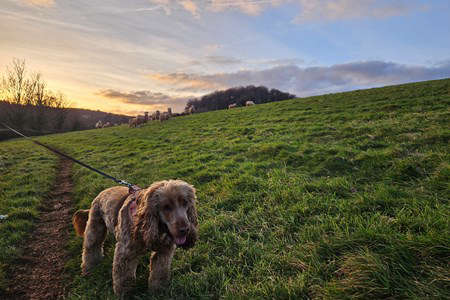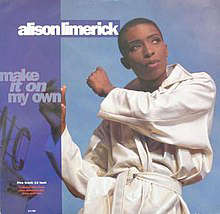
Making your own compost is a cheap and natural way of returning nutrients to the soil to support the growth of healthy plants and help your garden thrive.
It also puts unavoidable kitchen and garden waste, such as fruit and vegetable peelings and prunings, to good use and avoids the need to spend money on store bought compost.
If you have a garden or a communal green space, whether or not you have food waste collection, home composting benefits both your pocket and the environment.
A 2022 study in Devon found that we are still throwing away huge amounts of food waste. Nearly a third (28.2%) of our black bin waste is made up of food waste, and a further 6.8% comes from garden waste. Some of that waste, such as uncooked fruit and vegetable peelings, flowers, twigs and dead leaves, could be composted at home.
Home composting requires a composting receptacle ideally placed in a sunny spot in the garden. You can buy reduced priced compost bins (Devon residents only) or make your own from old pallets. Sleek or rustic, they both do the same job and that’s to create a warm environment for organic matter such as grass cuttings, plant prunings and vegetable peelings to rot down into a nutrient rich compost.
Making compost is like baking a cake – add the right ingredients, cook at the right temperature and hey presto! Perfect results every time!
Ideally, a compost bin will have a 50/50 mix of greens and browns.
It’s important to only compost uncooked food scraps and avoid adding meat or fish as you may end up attracting unwanted visitors to your garden. If you want to compost all food waste at home, including cooked food, meat and fish, you’ll need a closed system such as the Green Johanna or Green Cone, both of which available at a reduced price to Devon residents. Find out more here.
Did you know that you can compost tissues, pet fur, nail clippings and the contents of your vacuum cleaner? Basically, anything that once lived can be composted!
This handy step by step guide will help you get started and includes some insightful video tutorials by Devon composting guru Nicky Scott.
Your compost will be ready in 9-12 months and should be rich, dark and crumbly with an earthy smell. Use it in plant beds, vegetable patches and hanging baskets to add moisture, structure and nutrients back into the soil.
If you don’t have the space for a compost bin, why not opt for a wormery? Worms are the perfect low maintenance pet and will happily munch your food waste, leaving you with a very rich soil improver and lots of nutritious liquid plant food. Find out more here.

 Rural Affairs officers welcome new law to crack down on livestock attacks
Rural Affairs officers welcome new law to crack down on livestock attacks
 Hospiscare needs your help with a unique ‘double your money’ fundraising challenge
Hospiscare needs your help with a unique ‘double your money’ fundraising challenge
 County Council invites residents to help shape 2026/27 budget
County Council invites residents to help shape 2026/27 budget
 ‘Pop-up’ vaccination clinics being held in several communities this week
‘Pop-up’ vaccination clinics being held in several communities this week










